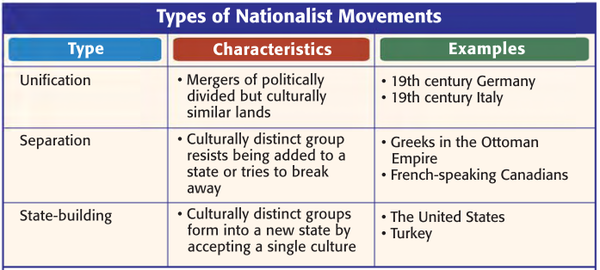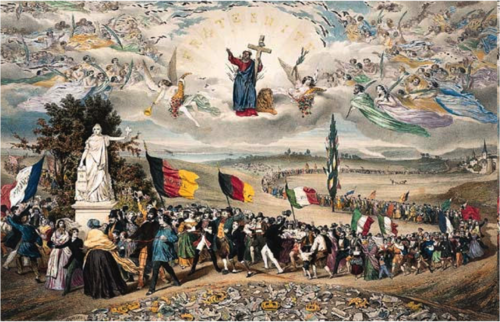Nationalism - Process Step 1

WHAT IS NATIONALISM?
Nationalism is a sense of identity with the nation or in other words, it is a collective pride in your nation. It is similar to tribalism, and like the family, is held together by a sense of kinship. Liah Greenfeld, Professor of Sociology at Boston University has defined nationalism as "an image of a social order, which involves the people as a sovereign elite and a community of equals". The original use of the term nationalism refers to elite groups, but in modern usage it refers usually to a very large group, sometimes as large as an empire. In simple, nationalism is the belief in your country. Patriotism is the pride and devotion you have to your country within that belief.
A nation differs from a tribe in that it is larger. The greater literacy, and the improved communications and transportation rendered by industrialization make the nation possible.
The nation is unlike an empire, which is held together by military force, by police, sometimes by religion as with a god-king. The relationship between the members of an empire is an unequal relationship between the ruler and the subject.
The relationship of the members of a nation is, theoretically, an equal relationship between citizens. It develops differently in different national communities under different historical circumstances.
According to Professor Liah Greenfeld, nationalism may be collectivistic (as a whole) or individualistic (independent) depending upon whether or not the community or the individual is considered to be more important. A collectivistic nationalism tends to be authoritarian or absolute control over a country and its people. An individualistic nationalism tends to be liberal or free from absolute government control.
Also, nationalism may be ethnic, religious, social, or civic (political). Ethnic nationalism must also be collectivistic because it is based upon blood or race or ethnic group. Nazi Germany was ethnic nationalism. Civic nationalism is usually individualistic such as in Great Britain or England, but it can be collectivistic such as in France. Russia is an example of ethnic, collectivistic nationalism.


